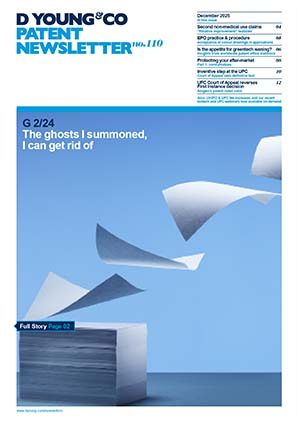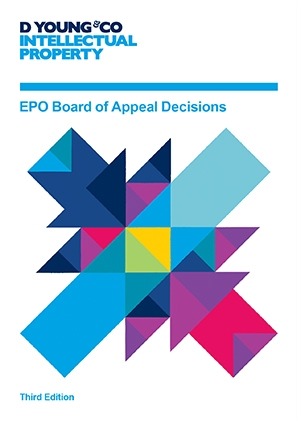After Actavis: UK patent decisions post Actavis v Lilly
In Actavis v Lilly the Supreme Court introduced a doctrine of equivalents and a limited form of file wrapper estoppel into UK law. This case law has been applied in Generics v Yeda, L’Oréal v RN Ventures and Fisher & Paykel v Resmed.
Normal interpretation
Before considering variants, Actavis requires that the “literal” or “normal” meaning of the claims is determined. In Generics v Yeda, “normal interpretation” was understood to be an issue of purposive and not literal construction; the same approach was taken in L’Oréal v RN Ventures and Fisher & Paykel v Resmed.
Scope of pre-grant and post-grant claims
A consequence of Actavis is the apparent imbalance between the apparent scope of the pre-grant and post-grant claims.
Generics v Yeda touched on the question of a prior art disclosure which does not infringe the literal wording of the claims but is later found during infringement proceedings to be an infringing equivalent. In this decision it was confirmed that the assessment of novelty, under “normal interpretation” continues to exclude equivalents.
Specification disclaiming protection by the claims
In L’ Oréal v RN Ventures it was concluded that the feature in issue produced substantially the same result in the same way as the patent, and obviously so. However, it was noted that the patentee had discussed the variant at length in the specification and chosen to exclude it from the claims.
The judge concluded that the skilled reader would have assumed that the patentee intended to do so for a reason and therefore, he would have concluded that the variant was not an equivalent, in light of the third Actavis question.
RN Ventures sought to rely on a principle from the German courts “that as a rule there is no patent infringement by equivalence if the description discloses several possibilities as to how the technical effect can be achieved, but only one of those possibilities is included within the claims”.
The judge refused to decide whether the German doctrine of “deliberate selection” should be applied as part of the UK doctrine of equivalence and stressed that the conclusion in this case was based on the specification and did not establish any wider principle.
Reference to the prosecution history for construction
In Actavis the Supreme Court introduced limited file history estoppel such that reference to the prosecution history would only be appropriate where:
- the point of construction was “truly unclear” but the contents of the prosecution file “unambiguously resolve the point”; or
- it would be “contrary to the public interest for the contents of the file to be ignored”.
RN Ventures tried to argue that during prosecution L’ Oréal had limited Claim 1 to a tension/compression mode to support inventive step. The examiner had then requested that dependent claims to the shear mode be deleted. RN Ventures argued that this indicated that the examiner understood that L’Oreal was excluding the “shear mode”.
RN Ventures contended that the second circumstance applied, submitting that “the examiner had gained the impression that L’Oréal was choosing to exclude the [shear mode] from the claims, and L’Oréal should have explained to him that this was not the case, rather than electing to approve the text”.
The judge rejected this, noting that the interpretation is a matter for the national courts and not the examiner. The judge echoed the Actavis decision, saying that “[i]t should be emphasised that reference to the prosecution history is the exception, and not the rule”.
Conclusions
- The Patents Court has not yet widened Actavis’ narrow interpretation of when the prosecution file may be relied on for construction of the patent post-grant.
- The use of prosecution history must support at least one of the two instances identified by Lord Neuberger in Actavis v Lilly.
- Be cautious of language in the specification which could be construed as disclaiming protection by the claims. The German principle of deliberate selection or the US disclosure-dedication doctrine have not entered into English patent law but we expect the Courts to inspect the language of the specification more closely following Actavis.
Case details at a glance
Jurisdiction: England & Wales
Decision Level: Patents Court
Parties: L’ORÉAL SOCIÉTÉ ANONYME, L’ORÉAL (UK) LIMITED (claimants) and RN VENTURES LIMITED (defendants)
Date: 05 February 2018
Citation: [2018] EWHC 173 (Pat)
Link to full decision (bailii): http://dycip.com/patentscourt-loreal-ventures


